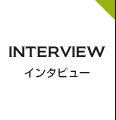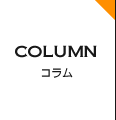Typically, it takes anywhere from 3 to 6 months to see substantial changes in your search engine rankings. Learning what is SEO involves understanding the basics of search engine optimisation, including keyword research, on-page SEO, off-page SEO, and technical SEO. It’s essential to practice these techniques on your own website or blog to gain practical experience. SEO knowledge grows as you stay updated with the latest industry trends and changes in search engine algorithms.
What tool would you use to find out whether Google indexed your page?
The total number of URLs search engines can and want to crawl on a website during a specific time period. When a user’s query includes an exact match, or variation, of a specific company or brand name. For instance, “Search Engine Journal”, “SEJ”, “SearchEnginejournal.com”, and “Search Engine Journal SEO 101 Guide” are a few examples of branded keywords. Organizations can bid on a keyword or phrase so a link to their page automatically appears on SERPs for that term.
These backlinks serve as endorsements from other reputable sites, boosting your website’s authority and credibility in the eyes of search engines. Effective link-building strategies include guest blogging, influencer collaboration, and creating compelling content that naturally attracts links. By focusing on acquiring quality backlinks, you can improve your website’s search engine rankings and drive more organic traffic. Off-page SEO refers to optimization techniques that are done outside of your own website. The goal of off-page SEO is to get both search engines and searchers to view your website as a trustworthy source, by boosting its authority and credibility.
Find competitor keywords with NEW Keyword Gap
Keyword research helps you find the words that people search for when looking for content like yours. You can then write blog posts about the right topics and use these keywords in your posts to get more traffic from search engines such as Google. The important optimization part of the content is matching user search intent. When users conduct searches, they want to find information that is relevant to their search query. Optimizing your content for user search intent helps your content appear in relevant search results.
Off-page SEO covers the efforts taken outside your website to improve its rankings in search results. When people talk about SEO, they often have optimization for Google in mind. The short answer is yes if you run a small to medium-sized website.
For example, if you run a coffee blog, simple phrases such as “coffee beans”, “coffee machines” or “espresso” will work great. Many of them have been officially confirmed by Google but many remain in the realm of speculations and theories. From the practical point of view, it’s important to focus on factors that have a proven impact but also try to keep a “good score” across all the areas. The only question is whether you are willing to invest some time into learning all the aspects SEO Anomaly of SEO, or you’ll hire a professional and invest your time into something else.
- SEO is a cost-effective digital marketing strategy that can generate a high return on investment (ROI) when done right.
- They then use this information to help them determine where your brand should rank on the search engine results page.
- Build a fast-loading, fast-to-respond website by following best practices like compressing images, minifying code, enabling browser caching, and using a Content Delivery Network (CDN).
- For example, organizations with a limited marketing budget might want to focus strictly on SEO.
- It helps small websites compete with larger ones, drives organic traffic without relying solely on ads, and builds credibility by appearing at the top of search results.
Your website isn’t just a digital brochure—it’s the engine that powers your local SEO success. While your Google Business Profile (GBP) acts as the front door, your website is the foundation that tells search engines exactly who you are, where you serve, and why locals should choose you. The meta description character limit in SEO is around 150–160 characters.





















